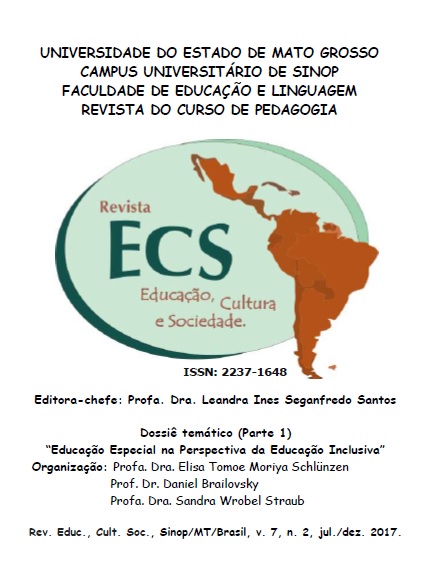Exploratory research into what students demand from Portuguese public university
DOI:
https://doi.org/10.30681/ecs.v7i2.2311Resumo
Given both the extent of changes taking place within the university sector, it would seem correspondingly necessary for such organisations to respond with alterations to their traditional management structures. Stakeholder theory would seem to provide a contribution towards this end given how it identifies and prioritises the problems susceptible to resolution. The objective of this study was to identify the expectations of one the most important groups of university stakeholders, students. To that, an exploratory-qualitative research approach was adopted based upon a case study with students from a Portuguese university. The results obtained demonstrate that students perceive the purpose of universities as incorporating the training of citizens and that the decisions taken by universities have different impact on students, according to their characteristics as gender, age, ethnicity or socioeconomic status. Hence, the university could not exclusively concentrate on rendering services within the scope of student expectations but rather provide a broader reach that includes not only the central service, in this case teaching, but also peripheral services. Thus, the theory of stakeholders proves to be a model that can guide the management of universities to recognize and meet the demands of different types of students of Portuguese public universities.
Keywords: student demands; stakeholders management; university; higher education; Portugal.
Downloads
Downloads
Publicado
Edição
Seção
Licença
A Revista Educação, Cultura e Sociedade – RECS utiliza o Padrão de Licença Creative Commons na modalidade Attribution-NonCommercial-ShareAlike 4.0 Internacional (CC BY-NC-SA 4.0).
Deste modo, você é livre para:
Compartilhar — copiar e redistribuir o material em qualquer meio ou formato;
Adaptar — remixar, transformar e construir sobre o material.
Nos seguintes termos:
Atribuição — Você deve dar o crédito apropriado, fornecer um link para a licença e indicar se as alterações foram feitas. Você pode fazê-lo de qualquer maneira razoável, mas não de qualquer forma que sugira que o licenciante endossa você ou seu uso.
Não Comercial — Você não pode usar o material para fins comerciais.
ShareAlike — Se você remixar, transformar ou construir sobre o material, você deve distribuir suas contribuições sob a mesma licença que o original.

